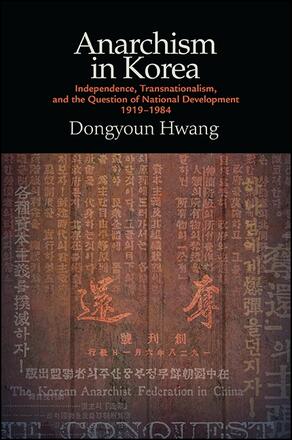
Anarchism in Korea
Independence, Transnationalism, and the Question of National Development, 1919-1984
Alternative formats available from:
A regional and transnational history of anarchism in Korea.
Description
This book provides a history of anarchism in Korea and challenges conventional views of Korean anarchism as merely part of nationalist ideology, situating the study within a wider East Asian regional context. Dongyoun Hwang demonstrates that although the anarchist movement in Korea began as part of its struggle for independence from Japan, connections with anarchists and ideas from China and Japan gave the movement a regional and transnational dimension that transcended its initial nationalistic scope. Following the movement after 1945, Hwang shows how anarchism in Korea was deradicalized and evolved into an idea for both social revolution and alternative national development, with emphasis on organizing and educating peasants and developing rural villages.
Dongyoun Hwang is Professor of Asian Studies at Soka University of America.
Reviews
"Until now, non-Korean speakers didn't have such a comprehensive, balanced and thoughtful history of Korean anarchism put together … this book is of great interest to scholars in a wide range of disciplines, but also to activists interested in difficult problems such as those of decolonization, development, anti-authoritarian politics and nationalisms … it is a book which was long overdue and we can only praise that, finally, it has become available, filling an important gap." — Anarkismo
"In contrast to dominant Korean-language scholarship, this book has a dialectical understanding of the relationship between anarchism and nationalism, one that understands the importance of nationalism for revolution in the colonial context, but one that also shows convincingly that as anarchism in Korea grew and deepened, it acquired significantly transnational dimensions." — Christopher Connery, author of The Empire of the Text: Writing and Authority in Early Imperial China